Love Addiction
If you are coming to this website either you or someone you love might be struggling with love addiction. All of us have shown signs of love addiction or the opposite (love avoidance) at some point in our lives. The point isn’t to label but to name it so you can heal.
What is it?
Love addiction is rooted in experiencing some sort of abandonment from the past. Love addiction is compulsively seeking romantic relationships despite negative social, emotional, financial, or physical consequences. Love Addiction can be treated with individual weekly therapy and weekly group therapy.
Love addicts, also known as relationship addicts, use love, or the pursuit of love, as a way of distracting themselves from uncomfortable feelings or emotions. Love addicts tend to have unrealistic expectations for giving and receiving love.
You may suffer from love addiction if you find yourself:
Obsessing about a partner or new found relationship
Getting into the next relationship as soon as one ended
Having difficulty being alone
Having difficulty focusing on and / or thinking about anything else
Equating love and relationships with self-esteem or self-worth
Limiting your participation in important activities because of the relationship
Spending much less time with friends and family because of the relationship
Lacking true intimacy and find that your relationship is often filled with jealousy
Becoming co-dependent quickly
Using love as a form of manipulation
Confusing sex with love, and offer sex with the hope of receiving love
Putting the other person's need before your own
Having an intense fear of abandonment
Getting into the next relationship as soon as one ended
Repeatedly 'falling in love' with people you meet on the internet and have never met in person
Craving closeness, but repeatedly choosing intimacy avoidant people as partners
Seducing and fantasizing primarily for the thrill of pursuing and being pursued
Rather than allowing sex and love to foster a sense of bonding or intimacy, a love addict unwittingly finds him or herself anxious, in pain, and afraid of being rejected or alone. They often get caught up in intrigue, flirtation, serial dating or affairs, all in search of the yearned for “right” partner. Or, alternatively, love addicts sometimes cling to bad relationships, justifying it as better than having to spend time by themselves.
In each of these scenarios, needs are not met and the cycle of desperation deepens. Over time, the inability to be intimate with others or developing attachments to those who are unavailable for commitment, can erode one’s self-esteem. The first step toward breaking the cycle is to recognize and admit your struggle by bringing it into the light.
Love Addiction and Codependency
Some love addicts get caught in toxic relationships and become codependent. Love addiction and codependency often go hand-in-hand as love addicts will do anything to take care of their partners. Toxic care-taking can be in the form of enabling immature behaviors or “rescuing” in hopes that they will not be abandoned. Love addicts allocate an unbalanced amount of time, attention and value to the person that they are addicted to (i.e., their “qualifier”), and this focus usually has an obsessive quality. It is not uncommon for love addicts to neglect themselves “in service to the relationship.” Self neglect usually leads to resentment and anger, rather than intimacy and harmony.
Love Addiction Therapy with Peloton COUNSELING:
Love addiction is deeply rooted in a constant need for attention, validation, nurturing, and connection. Love addiction therapy can lead to a deeper awareness regarding the underlying causes of the obsessive needs. Learning about codependent patterns leads to a better understanding of oneself which can lead to improved self esteem and healthier love connections. With a commitment to change, and help from a professional with expertise in treating love addiction, recovery from love addiction is possible.

